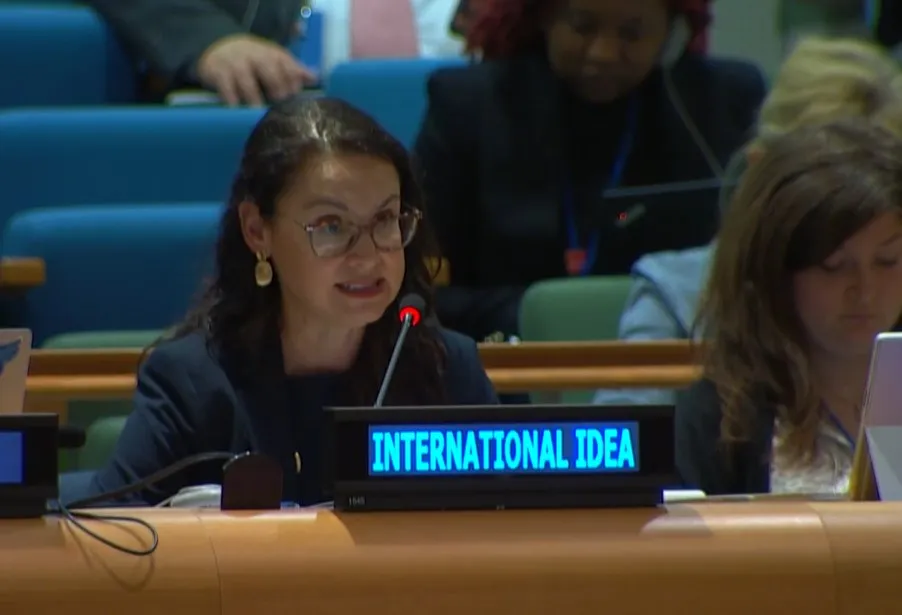Statement: Investing in data to accelerate development (ECOSOC Financing for Development Forum)

ECOSOC Financing for Development Forum
Ministerial fireside chat 5: Investing in data to accelerate development
Excellencies, distinguished delegates, colleagues,
International IDEA welcomes this vital discussion on the urgent need to invest in data to accelerate sustainable development. As an organization dedicated to strengthening democracy worldwide, we wish to emphasize that investing in data for SDG 16—on peace, justice, and strong institutions—is essential to the Financing for Development agenda and to the achievement of the entire 2030 Agenda.
SDG 16 is a foundational enabler of sustainable development. Without progress on inclusive governance, access to justice, rule of law, and the building of accountable institutions, progress across the other SDGs will falter.
However, despite its pivotal role, SDG 16 is among the goals with the least availability of official data. According to the UN, fewer than half of SDG 16 indicators have sufficient data for global monitoring.
This profound data gap has significant implications: what is not measured cannot be managed, resourced, or financed. If we are serious about mobilizing financing for sustainable development, we must be equally serious about closing these data gaps.
To help fill this urgent need, International IDEA coordinates the SDG 16 Data Initiative, a collective effort involving 18 organizations from civil society and international institutions. This Initiative complements official statistics by producing and aggregating non-official data, including observational, expert and public opinion data on SDG 16 indicators, helping to build a fuller and more disaggregated picture of progress, challenges, and needs. These alternative data sources are vital for informing evidence-based policymaking, for empowering citizens, and for enhancing transparency and accountability.
Investing in such innovative and complementary data ecosystems is not only a necessity—it is also highly cost-effective. Yet, despite some progress, funding for governance-related data remains insufficient compared to other areas such as health or education.
Therefore, we call on member states, donors, and international financial institutions to:
• Prioritize governance data investments within broader data financing strategies;
• Recognize and integrate non-official data, including public and expert opinion data sources into national statistical systems, in line with international quality and ethical standards;
• Support partnerships like the SDG 16 Data Initiative that bridge official and non-official data gaps;
• Strengthen governance frameworks that ensure data quality, accessibility, transparency, and ethical use.
In sum: to finance development effectively, we must finance data on governance. Only then can we fully measure, manage, and mobilize the progress needed to leave no one behind.
Thank you.